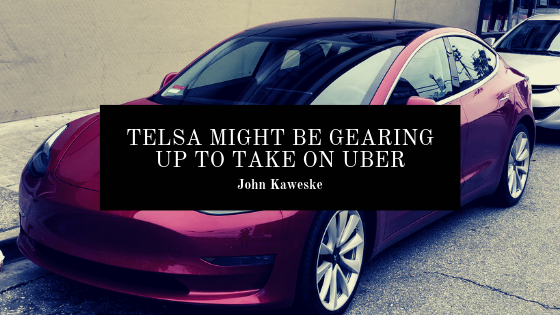Tesla Motors CEO Elon Musk has been posting publicly to Twitter lately about the companies urgent plans to get their self-driving car software to achieve full autonomy.
Ramping up the Autopilot software team at Tesla to achieve generalized full autonomy. If interested, contact autopilot@teslamotors.com.
— Elon Musk (@elonmusk) November 20, 2015
Should mention that I will be interviewing people personally and Autopilot reports directly to me. This is a super high priority.
— Elon Musk (@elonmusk) November 20, 2015
These Tweets and others alluding to the importance of the program and the push to improve it have many speculating that the company is preparing to join the race to launch a self-driving car service able to rival the one being built by the world’s reigning car service: Uber.
Tesla just launched its Autopilot feature last month, and currently it enables limited self-driving functions such as allowing the cars to steer themselves on highways.
However, the technology has had it’s shortcomings, and response from the public has caused some controversy. Drivers immediately began a trend of posting reckless videos to YouTube that demonstrated things such as the cars’ inability to detect worn lane markers which can cause near-collisions.
It should be noted that Musk and Tesla have always stipulated that drivers should remain attentive and ready to grip the wheel at any time.
Tesla and Uber aren’t the only companies looking to achieve a vehicle with full driving autonomy.
The race has been on in the auto and tech industries for some time. Currently, Google is prototyping vehicles in Mountain View, CA. The University of Michigan has a testing facility open to a number of traditional automakers and tech firms for testing their software. In a previous blog, I discussed when Mercedes-Benz joined the race. Last month, General Motors also announced plans of its own for self-driving vehicles.
The competition is stiff, but Tesla’s main competitor in the self-driving space might be Uber. Earlier this year, the transportation company did a gigantic hiring round directly out of the robotics department at Carnegie Mellon University, recruiting most members, including the director, right into its self-driving program.
The reason for this race is simple: companies are worried that if self-driving technology proliferates the market, fewer people will own cars because they will be able to rely almost entirely on fleets of self-driving vehicles that come on demand, like Uber or Lyft drivers do now for cities.
It’s unclear who will be at the first company through the driverless door, but all auto companies know that some form of self-driving capabilities will be necessary if they want to remain competitive.
Maybe Tesla is on a hiring push in order to break ahead of the pack. Maybe they just want to perfect their currently flawed product. Either way, it will be great to see who get’s to that final truly driverless product first.
